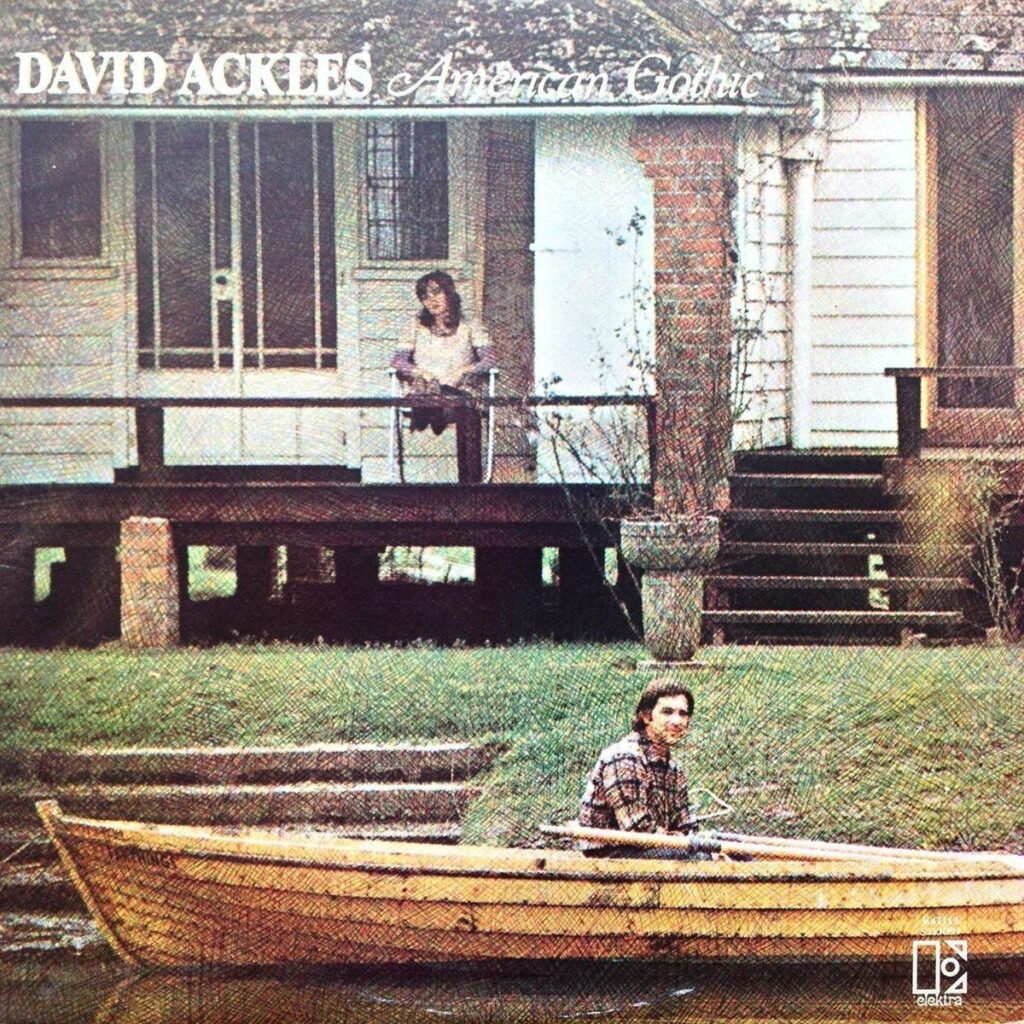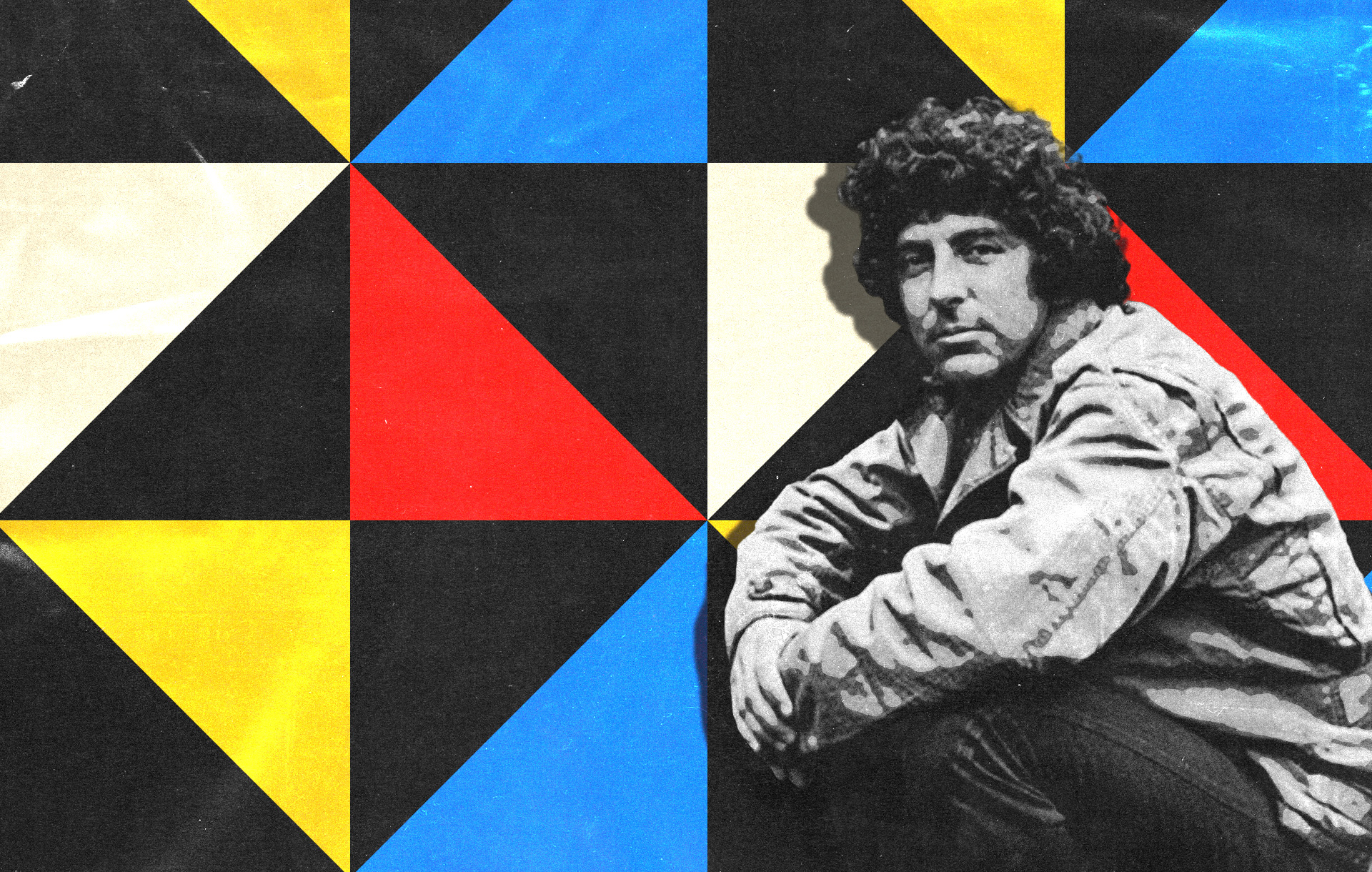If there ever was an artist that would perfectly embody an artists’ artist and critical darling, it would be David Ackles. The man who only recorded four albums between 1968 and 1973, is cited as one of the key inspirations by the likes of Elvis Costello, Robbie Robertson, and quite a few others.
Music critic Colin McElligatt described Ackles’ music as “[a]n unlikely clash of anachronistic show business and modern-day lyricism…deeply informs his recorded output. Alternately calling to mind Hoagy Carmichael, Irving Berlin, Robbie Robertson, Tim Hardin, and Scott Walker, Ackles forged an utterly unique sound out of stray parts that comprise a whole that is as uncompromising as it is unrivaled.”
Yet, to this day, and even after all the praise and support, numerous covers of his songs and a number of reissues of his work, and his untimely death from cancer in 1999, Ackles is still lacking any form of a wider audience.
In addition to his musical career, David Ackles also had an illustrious acting career. He was a professor of Drama and Music at Oregon State University and worked with numerous companies across the country as a director, performer, and consultant. His work spanned from theatre to television shows, commercials, and movies.
From Vaudville to Staff Songwriter
Ackles actually started his artistic career at the age of four (born in 1937) in vaudeville, moving to film, playing a character called Tucky Warden in the ‘Rusty The Dog’ film series. Later on, Ackles got a degree in film studies and was also proficient in theater, ballet, and choreography.
After a few odd jobs (in one of his rare interviews, Ackles cites security guard in a toilet paper factory and private detective) he moved to Los Angeles and worked as a staff songwriter for the publisher David Platz. This is where Davis met his mentor, arranger David Axelrod, who arranged Ackles’ first two albums.
Sure, Ackles got a job as a staff songwriter at Elektra Records, but initially, the label didn’t see his song as fit for any of their artists. So Jac Holtzman, Elektra boss, who was one of the first Ackles fans, came out with the idea that Ackles records his own songs.
The result was the run of his first three albums, which many consider some of the most influential within the singer-songwriter genre to start with.
Subway To The Country to American Gothic
In the late ‘sixties’60s, Elektra Records was considered one of the most adventurous record labels around. Yet, even for such an adventurous label, David Ackles’ self-titled debut (1968) was considered to be quirky and left-field.
Still, with glowing reviews and songs like “The Road To Cairo,” (one of Ackles’ most covered songs) it became a source fountain for quite a number of singer-songwriters, and not only of his generation.
Subway To The Country (1969) that followed, gave more prominence to Ackles’ vaudeville and theatre background. It also provided his strong profile, in most cases expressing first person the views of the song characters, most of which seem to be from the fringes of society. Again, glowing reviews and support from fellow artists, but no commercial success to speak of.
Then, after a pause of three years, came American Gothic (1972) the album that can be easily called Ackles’ masterpiece.
Recording the album within two weeks in England under the production of Elton John’s lyricist Bernie Taupin, Ackles actually worked for two years to create its musical and lyrical concept, which included some intricate orchestral arrangements.

Talking about the album in his book 1001 Albums You Must Hear Before You Die (2005), author George Durbalau writes: “American Gothic is an 11-piece song cycle organized around that “look for America” theme ― in this case, the rediscovery of self through contemplation of vanishing rural America. The musical materials of the album are brilliantly eclectic and ordered with such formal precision as to warrant concert hall production of the song cycle just as it is on record.”
For its part, Elektra Records gave Ackles his largest budget and dubbed American Gothic as the album of the year, while Chris Van Ness, the music editor of Los Angeles Free Press, wrote an enthusiast review comparing the album to Sgt. Pepper ( a comparison Ackles himself didn’t agree with).
It All Turns into Five and Dime
Again all praises (American Gothic has so far landed on quite a few best-of-all-time album lists) and no commercial success, so Elektra reluctantly or not, ended Ackles’ contract, or perhaps he left the label, that situation remains unclear. Clive Davis, then head of CBS Records and one of the big Ackles fans, signed him to a record deal.
Yet, it seems that Ackles started working on his new album (Five and Dime, 1973) under pressure from all the glowing reviews American Gothic received. Although he started the album in a recording studio, Ackles actually produced this album at home on a four-track recorder. As some describe it, he brought in “a modest and simple record” on time and under budget.
Clive Davis was fired from CBS Records almost simultaneously as the company perfunctorily released Five and Dime, also ending, not only Ackles’ record deal but his solo recording career as such.
As Ackles himself explained in that interview, “[t]hey (Columbia) just didn’t know what to do with me and after nothing happened with ‘Five And Dime’ they released me. And I just found it hard to get a deal. A part of it, I would have to say, was my own doing. I didn’t come away from Columbia thinking ‘well, by God I’m going to go elsewhere!.’ There was so little support that I thought to myself, maybe this isn’t what you’re intended to do.”
Life in Music Continues
Then and there Ackles himself decided that he just didn’t want to continue as a solo recording artist. Yet, that did not mean he would do work that wasn’t music related. As he notes, ” I did the music for a couple of movies, one called Word of Honour starring Karl Malden, another called Father Of The Year, nothing particularly great. I did a children’s TV series, anything, really, rather than teaching… the dreaded T-word! But I have to confess that I did teach commercial songwriting for a while.”
Eventually, Ackles wrote a musical, Sister Aimee, which was performed in Los Angeles in 1995. Afterward, he moved to Tujunga, CA, where he taught songwriting and theater studies before his death on March 2, 1999.
Despite being short-lived in terms of commercial success, David Ackles left behind a legacy that is still deeply appreciated by music fans today. His influence can be felt in many genres such as indie rock, folk rock, and alt-country; genres which he helped define. David Ackles will always remain an artist whose life’s work truly speaks for itself. A true immortal of modern music!
Ah, but are they happy?
“American Gothic,” 1972
You’d be surprised.
Between the bed and booze and shoes
They suffer least who suffer what they choose.




